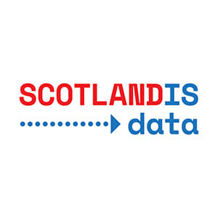In his first blog of the new year, Head of Data David reflects on the changes the past 20 months has brought to our sector and the significance of increased data capture that we are now witnessing.
As we start another year with the hope of seeing COVID restrictions starting to lift and the promise of a return to the office heralding a semblance of normality, planning for the adoption of a fundamentally changed working structure will be critical. Businesses have learned to operate with a remote workforce, employees have learned to work independently from the office and the vision of a hybrid work structure has become a viable option for discussion.
As a society and on an economic level, the ability to adapt so quickly to a new landscape and the rapid adoption of new technologies to enable changed ways of working has been incredible. The benefits of data analytics has been hugely valuable in responding to the pandemic situation which, whilst many organisations had identified within their risk registers, if being honest, few had truly imagined would happen and even fewer had planned and tested responses.
To improve organisational resilience, the ability to adapt to events and the impact that such changes can have on forward planning and forecasts will become an important function. Having witnessed the incredible response from the scientific and pharmaceutical sectors in the rapid development of multiple vaccines to fight COVID, the value of collaboration and data sharing has been clear for all to see. The explosion in data capture through the adoption of new and existing technologies and the value it can bring to the development of new and better products and services has a relevance across all sectors.
Having recently read that the amount of global human genomic data is estimated to be doubling in size every seven months, raises challenges not only within the research sector but is a further indication of the trends, whilst thankfully not as rapid, in the wider society. If we are witnessing an accelerated capture and application of data in multiple sectors, data is going to become an increasingly critical asset. Organisations will need to learn how to map and forecast their data journeys. However, in an exponential growth scenario, organisations will need to plan for any timescales in data growth to be continuously reviewed and amended. Planning a data journey and the corresponding resource requirements will be paramount to achieving full potential. In the knowledge that data skills will become increasingly valued and, in a market where demand is already outstripping supply, two things will need to happen. Firstly, increased learning and training opportunities to improve supply, and secondly, greater understanding of projected data journeys and their associated needs to identify the scale of demand.
It is already apparent that 2022 will merge new ways of working with the traditional and established processes to create a new landscape. It will be interesting to see how the experiences and lessons learned throughout the pandemic will change the way in which we plan for the future and the drivers which will be critical for managing and adapting to unexpected change.

